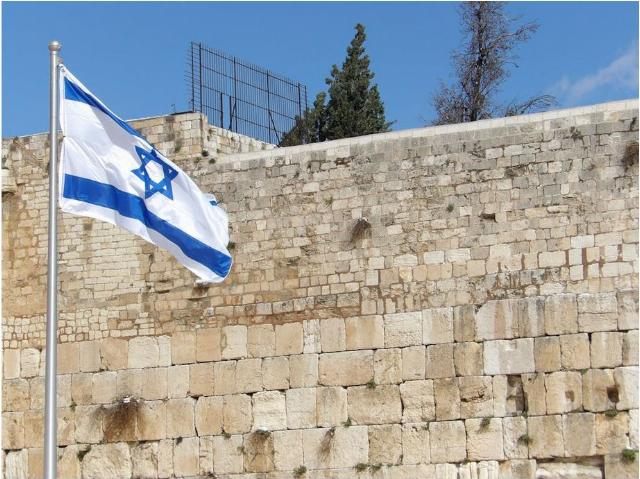A friendship between Israel and Saudi Arabia?
The timing of the Hamas October 7, 2023 attack on Israel was meant to disrupt the negotiations between Israel and Saudi Arabia being mediated by Washington. Iran, fearing the success of a powerful pro-American, pro-Western defensive alliance bloc comprising moderate Arab states and Israel, backed by the U.S., ordered Hamas to launch its attack. The Islamic Republic of Iran aimed to pull the Arab states out of such an alliance by fostering a destabilizing war intended to raise Arab solidarity with the Hamas and the Palestinians and break relations with Israel.
The Israeli retaliation against the Hamas terrorists in the Gaza Strip, justified by all measures, and the devastation it brought upon Gaza, was just the excuse Iran needed to activate its proxies, including Hezb’allah in Lebanon, pro-Iranian Shiite militias in Iraq and Syria, and the Houthis in Yemen. Iran also sought to demonstrate to its Gulf Arab neighbors that should they conclude such an alliance with the Americans and Israel, they might be targeted as well.
In July, U.S. president Joe Biden, in an interview with the Complex magazine in Detroit, expressed optimism about the chances of Saudi Arabia normalizing relations with Israel. If indeed such an agreement is on the table now, it will have far-reaching positive strategic consequences for Israel. According to President Biden, the Saudis are ready to commit to fully recognizing Israel and signing a defense treaty with the U.S.
The Saudis, for their part, demand from the U.S. a commitment to deliver arms and the construction of a civilian nuclear facility. If the U.S. is able to facilitate a regional defense alliance stretching from the Mediterranean Sea to the Persian/Arab Gulf, or from Israel to the Arab Gulf states, that would be a strategic and historical game-changer. Although the Abraham Accords were significant and historic, a regional defense alliance would produce major strategic and economic benefits.
Historically, real and lasting triumphs are achieved through a combination of diplomacy and strategic alliances. One way to defeat the axis of evil, led by Iran and its proxies, is to defeat them on the battlefield, as Israel is currently doing in the Gaza Strip by demolishing Hamas’s military capabilities and, hopefully, its political stranglehold in the Strip. But in order to deter the bad actors such as Iran and its proxies from resurfacing, a regional defensive alliance is crucial, and the inclusion of Saudi Arabia in such an alliance is critical.
Saudi Arabia is the birthplace of Islam, and the Saudis are the guardians of Islam’s holy sites of Mecca and Medina. Saudi Arabia is the largest state in the region, the biggest exporter of oil in the world, and one of the countries with most cash reserves in the world.
Saudi Arabia’s actual leader, Crown Prince Mohammad Bin Salman (MBS), along with younger leaders in the United Arab Emirates (UAE), Bahrain, and Morocco, presents a new model of Islam, one that is more moderate and willing to embrace the rest of the civilized world. Naturally, there remain traditional Islamic governance issues and particular interests that may not be in full harmony with Western ways. These countries are not Western-style democracies; however, in recent years, MBS and Mohammad Bin Zayed (MBZ), leader of the UAE, have changed the school curricula in their countries to reflect openness, including the study of the Holocaust.
The conservative Gulf monarchies are all pragmatic enough to realize that a variety of forces, from the old Arab nationalism to today’s Muslim Brotherhood and Shiite alliance, threatens all of them, and they are willing to do what is necessary to defeat common enemies and thus ensure their own survival.
The Saudis’ insistence on a two-state solution, and the creation of a Palestinian state, has been tempered by Abu Mazen’s corruption and the failures of the Palestinian Authority. The Palestinians no longer have veto power on the relationship of the Gulf Arab states (except Qatar, which is allied with Iran and the Muslim Brotherhood) with Israel. Moreover, the Saudis have their own interests to pursue.
Israel has always been ready for peace with its Arab neighbors. To make peace with Egypt and Jordan, albeit a cold peace, Israel gave up land. The Saudis are practically neighbors; from the beaches of Eilat one can see Saudi Arabia’s mountains. The Iranian menace to the region is, therefore, uniting the Arab Gulf states and Israel. In a recent interview with the Wall Street Journal, Saudi officials declared that support for the Palestinians is no longer a foregone conclusion. Young Saudis, in particular, are disillusioned with the Palestinian Authority and resent Hamas’s close ties with Iran. As Saudi officials put it, “if Hamas builds a relationship with Iran to protect themselves, then why don’t we have a relationship with Israel against Iran to protect ourselves?” Perhaps it is no longer a question of if Saudi Arabia would make peace with Israel, but rather when.
Saudi Arabia’s recognition of Israel would dispel the view among many Middle Easterners that the presence of a Jewish state in the mostly Muslim region is illegitimate. It would also likely open doors in other large Muslim nations such as Malaysia and Indonesia to diplomatic relations with the Jewish state.
To wage a war against Iran, the “snake’s head,” and its proxies, Israel needs the backing of a regional defense alliance led by Saudi Arabia and strongly supported by the U.S. This would certainly be a game-changer. It would deter Iran, create peace and stability in the region, and be a meaningful victory for Israel.
Image via Pexels.






